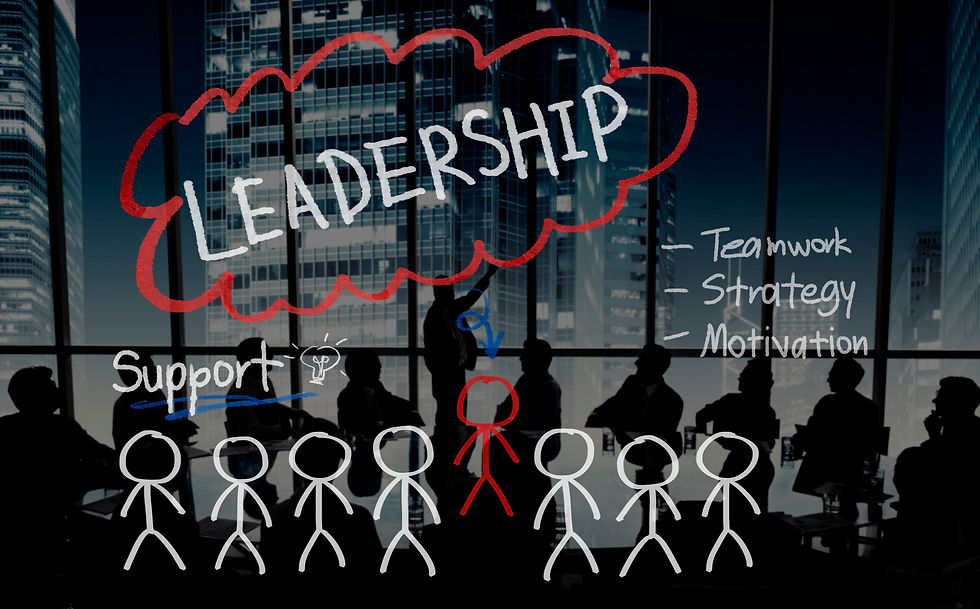The Swift Playbook: Why Putting People First is the Most Powerful Business Strategy
- Brian Goodwin
- 7 days ago
- 8 min read

In an era of meticulously crafted press releases and high-budget Super Bowl commercials, one of the most significant product announcements of the year arrived in a surprisingly understated package. Taylor Swift, arguably the most powerful cultural figure on the planet, chose to unveil her highly anticipated new album, The Life of a Showgirl, not in a stadium or on a global television special, but during a casual, nearly two-hour conversation on the New Heights podcast.
At first glance, the logic seems simple, almost trivial. The podcast is hosted by her boyfriend, Travis Kelce, and his brother, Jason, offering a comfortable and friendly environment free from the prying questions of journalists. But for an organizational psychologist, the most brilliant strategies often appear deceptively simple. To stop at the surface-level explanation is to miss a masterclass in modern leadership and community building. We need to think again about what we’re seeing.
This decision was not merely a personal choice; it was a strategic masterstroke that lays bare the psychological architecture of her unparalleled success. It’s a powerful case study in three principles organizational psychologists like Adam Grant have spent their careers studying: the power of reciprocity, the art of stakeholder engagement, and the nuanced practice of authentic leadership. This single event deconstructs the "Swift Playbook," revealing how these principles, often confined to boardrooms and academic journals, are the true drivers behind one of the most loyal and engaged communities in the world.
The Reciprocity Engine: Building a Community of Givers
At the heart of human interaction is a powerful social norm: reciprocity. We are wired to respond to an action with a similar action—to return favors and repay debts. In his own research, Grant has found that people tend to operate with one of three reciprocity styles: as "Takers," who try to get more than they give; "Matchers," who aim for an even exchange; and "Givers," who contribute without expecting anything in return. The data are clear: Givers are disproportionately represented at both the very bottom and the very top of the success ladder. Swift’s entire career is a case study in how to be a strategic Giver, building a deep well of goodwill through generous, non-transactional investments in her audience.
The 'Secret Session' as a High-Cost Signal of Trust
Long before an album is released, Swift initiates a profound act of giving through her "Secret Sessions." These are not your typical industry listening parties. For months, she personally scours social media platforms like Tumblr to hand-select fans, learning about their lives and who they are as people. She then invites them—not to a sterile event space, but into her personal homes in Nashville, New York, and Los Angeles. There, she bakes them cookies, plays her unreleased album directly from her iPhone, and spends hours in one-on-one conversation, often recalling intimate details she learned from their online posts.
This is an extraordinary gift of access and trust. Social psychology experiments have shown that the norm of reciprocity is so potent that it can compel us to return favors we never asked for, even from people we don't particularly like. By entrusting a small group of fans with her most valuable asset—her art—Swift is initiating a powerful social contract, one formalized by the signing of Non-Disclosure Agreements.
The dynamic this creates is fascinating. The most valuable thing a fan can give an artist who has everything is not their money, but their loyalty and their silence. By not leaking the album, the fans reciprocate her immense trust. This transforms the act of keeping a secret from a passive obligation into an active, meaningful contribution. It reframes them from mere consumers into trusted guardians of her work. This explains the fierce, protective loyalty of her core fanbase; they are not just buying a product, they are upholding their end of a deeply personal agreement.
Easter Eggs as a Shared Intellectual Quest
Swift’s strategy of embedding intricate clues, codes, and hidden messages—her famous "Easter eggs"—into everything from lyric booklets to music videos is another form of strategic giving. She has clarified that these puzzles are always about her upcoming music, not her personal life, which makes the game a safe and engaging intellectual quest for her community.
Instead of just demanding attention, she gives her fans a challenge and an opportunity to feel competent. In Give and Take, Grant wrote that the most meaningful way to succeed is to help others succeed. By creating these puzzles, she gives her fans a chance to "win" by solving them. This act of giving—the gift of a rewarding intellectual puzzle—unleashes a torrent of reciprocity.
This transforms what might be seen as "fan labor" into a form of empowered play. The fans’ work of decoding, collaborating online, and forming theories is intrinsically rewarding. The payoff is not just the eventual music, but the sense of community and the "cultural clout" that comes from being part of the collective that solved the mystery. She invests in their experience, and they reciprocate with millions of hours of passionate, authentic, and highly effective promotion. It is a self-perpetuating marketing engine fueled entirely by goodwill.
From Audience to Stakeholders: A Paradigm Shift in Engagement
Perhaps Swift's most significant innovation is her intuitive grasp of a core business principle: she treats her fanbase not as a monolithic market to be managed, but as a diverse ecosystem of stakeholders to be engaged. Effective stakeholder engagement requires systematic identification, prioritization, and tailored communication—all of which were on brilliant display in the New Heights announcement.
The Podcast as Strategic Stakeholder Prioritization
The choice of the New Heights podcast was a masterclass in stakeholder mapping. Instead of a generic, "one to many" broadcast aimed at the general public, she chose a "one to some" platform that speaks directly to a highly engaged and relevant group of stakeholders.
The results were immediate and quantifiable. The podcast saw a staggering 3,000% increase in listenership on Spotify and, crucially, a 618% spike in female listeners, demonstrating a deliberate and successful targeting of a core demographic. The episode's record-breaking viewership—1.3 million concurrent viewers during the live broadcast and over 9 million views on YouTube in the first 12 hours—is not just a measure of her fame. It is a testament to the power of activating a core stakeholder group and empowering them to amplify the message across their own networks, generating hundreds of millions of additional views through clips on other platforms.
Public figures often choose friendly podcasts to control their narrative and avoid tough questions. This is true, but it’s an incomplete analysis. From a psychological perspective, the "comfortable environment" is a strategic asset because it creates psychological safety. This is the shared belief that a team or group is safe for interpersonal risk-taking. In a psychologically safe environment, people are more willing to be open, share personal stories, and express genuine emotion. Swift’s appearance was filled with these moments: she grew emotional discussing her master recordings, shared candid details about her relationship, and engaged in lighthearted banter about her baking hobbies. The choice of platform was not just a defensive move to avoid scrutiny; it was an offensive move to enable a deeper, more authentic level of communication. The medium itself became part of the message, signaling to her stakeholders that she valued genuine connection over a polished performance.
Tailoring the Message: Depth Over Breadth
The content of the nearly two-hour podcast was as strategic as the choice of venue. It was a deep, wide-ranging discussion covering the album's creative genesis ("everything that was going on behind the curtain"), the emotional saga of reclaiming her music, and even the surprising parallels between her post-show recovery and that of a professional athlete.
This aligns perfectly with stakeholder engagement theory, which emphasizes consistent communication and active involvement to build ownership. By sharing the "why" behind her work in such a narrative-driven way, she transforms her stakeholders from passive recipients of a product announcement into informed partners who understand the story and feel a greater sense of investment.
A traditional PR strategist might have cut details about baking sourdough or using toe-spacers as irrelevant "fluff". But from a relationship-building perspective, these details are critical. They are powerful humanizing agents that create multiple, relatable points of connection beyond the music itself. This builds relational trust, which is far more durable than the transactional interest generated by a typical marketing campaign. By discussing the "perpetual discomfort" of her tour, she taps into universal themes of hard work and resilience.
The Authenticity Advantage: Leading with Purpose, Not Perfection
This brings us to the final piece of the puzzle: authentic leadership. Swift exemplifies a sophisticated understanding of this concept. It is not about radical, unfiltered honesty—as Grant has often said, "be yourself" can be terrible advice. It is about a disciplined alignment of one's actions with one's core values, adapted to the situation at hand.
The Authenticity Paradox in Action
Herein lies the paradox: the podcast was a deeply personal and seemingly spontaneous conversation, yet it was also one of the most effective and strategic marketing launches in recent memory. This is not hypocrisy; it is the essence of effective authentic leadership. True authenticity is not a static state but a dynamic process of aligning your behavior with your deepest values and purpose. Swift's core value is creating connection through storytelling. The podcast was a strategic choice that allowed her to be authentic to that value on a massive scale. The strategy and the authenticity were one and the same.
A key moment in the podcast was her emotional retelling of the phone call where she learned she would regain control of her master recordings. A conventional leader might have framed this as a triumphant, powerful victory. Instead, she shared her vulnerability—the tears, the feeling of being overwhelmed. This is a powerful leadership technique. Grant's research shows that honesty about struggles and owning weaknesses does not diminish a leader; it enhances credibility and builds trust. By being vulnerable, she reframed a complex business transaction into a deeply human story of struggle and vindication. This act of strategic vulnerability galvanizes stakeholders, making them feel emotionally invested in her success. It transforms her victory into their victory.
Leading with Heart (and a Plan)
Throughout the conversation, Swift connected her work to her purpose. She described the new album as a direct reflection of her emotional state, saying the vibrant orange iconography represented how her life "energetically has felt". She even brought the narrative full circle, joking that Travis Kelce’s public courtship via the podcast was the kind of romantic gesture she’s "been writing songs about wanting to happen to me since I was a teenager". This creates a powerful, coherent story where her life, her art, and her communication platform are all seamlessly integrated. This is why her fans feel they truly know her—it’s the result of a long-term, values-driven commitment to authentic storytelling.
This is where all three principles—reciprocity, engagement, and authenticity—converge. The act of authentic self-disclosure is, in itself, a form of giving. When a leader shares their genuine self—their passions, values, and vulnerabilities—they are offering a gift of trust to their stakeholders. That gift triggers the norm of reciprocity. The audience feels a powerful, often unconscious, obligation to reciprocate that trust with their own emotional investment, attention, and loyalty. The New Heights podcast was not just an announcement. It was the latest and most public act in a decades-long cycle of reciprocal exchange. Her authenticity is not a performance for her stakeholders; it is an offering to them. This fundamental difference is the key to her entire model of success.
How to Run Your Team Like Taylor Swift
Swift's success is not an anomaly. It is the predictable result of systematically applying core psychological principles. The lessons are directly applicable to leaders in any field.
Create Your 'Secret Sessions'. Don't rely solely on formal, top-down communication. Find ways to cultivate high-trust, psychologically safe spaces where you can share information vulnerably with key team members. Empower them by making them feel like trusted insiders. A great way to start is by running a "Reciprocity Ring," a structured exercise where team members make requests and help each other out, building a culture of giving.
Become a Stakeholder Analyst. Map your own ecosystem. Who are your most passionate advocates—your internal "Swifties"? Stop using one-size-fits-all communication. Tailor your message and your medium to deepen your connection with this core group, and then trust them to amplify your vision.
Practice Strategic Authenticity. Reject the false choice between being "authentic" and being "effective." Identify your core leadership values and find creative, strategic ways to live them in your daily actions. Be honest about challenges. As Grant has noted, your team likely already knows your weaknesses; you gain immense credibility by having the integrity to acknowledge them.
The ultimate lesson from the Taylor Swift playbook is a fundamental shift in mindset. Stop treating people as resources to be managed, and start seeing them as a community to be served. If you make them your first priority—if you listen to them, invest in them, and trust them—they will reciprocate with a level of loyalty and engagement that no traditional strategy can ever hope to achieve.



Comments